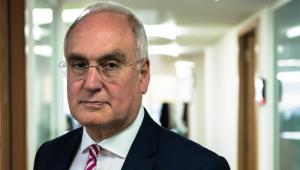By Vivienne Russell | 11 December 2013
England’s education system is improving but is marred by significant regional differences, chief inspector of schools Sir Michael Wilshaw said today as he published his second annual report.
‘It is not an exaggeration to report that the story of our schools and colleges today is a tale of two nations,’ he said.
‘Children from similar backgrounds with similar backgrounds with similar abilities, but who happen to be born in different regions and attend different schools and colleges, can end up with widely different prospects because of the variable quality of their education.’
Wilshaw also highlighted the underachievement of children from low-income families, particularly white children. Since 2007, the attainment of white children on free school meals has improved more slowly than for all other ethnic groups.
‘It is not solely a question of material poverty,’ Wilshaw said in his commentary on the report.
‘It is often poverty of expectation in families, schools and in the communities they serve that is limiting the achievement of these children.’
The Ofsted chief also drew attention to the problems caused by poor discipline in classrooms, saying around 700,000 pupils attend schools where behaviour needed to improve.
Overall, education in England was found to be improving, with eight out of ten schools now rated as ‘good’ or better – the highest proportion since Ofsted was founded 20 years ago.
Almost half a million primary pupils, and 200,000 secondary pupils now attend a school rated ‘good’ or ‘outstanding’ compared to a year ago. There are only three local authorities where fewer than 60% of primary school pupils attend a good or better school, down from 23 in 2011/12.
However, a quarter of a million pupils are still being taught in inadequate schools. In 13 local authorities, less than half of secondary pupils attend a good or outstanding school.
Malcolm Trobe, general secretary of the Association of School and College Leaders, highlighted that school funding as well as school performance was subject to a postcode lottery.
‘There are many parts of the country where the funding is very low and this makes it much more difficult for schools in these areas to improve as they are unable to fund the necessary strategies,’ he said.
‘It will be important that the secretary of state addresses these inequities in the development of the national fair funding formula.’
Christine Blower, general secretary of the National Union of Teachers, criticised Wilshaw’s attack on the ‘poverty of expectation’ teachers placed on poorer children. Such allegations were insulting to the profession, she said.
‘We have to tackle the inequalities in society if we are to tackle the low achievement of working class pupils. While no teacher would use this as an excuse, it is a plain fact that social background has a very significant impact on the achievement of children. Good quality early years education alongside a relevant and engaging curriculum and examination system is essential.’
On further education, Ofsted found that 71% of all providers were judged ‘good’ or ‘outstanding’, an increase of 7% on last year. However, the number of inadequate providers increased from 34 to 41 and included some previously top-performing colleges.





















